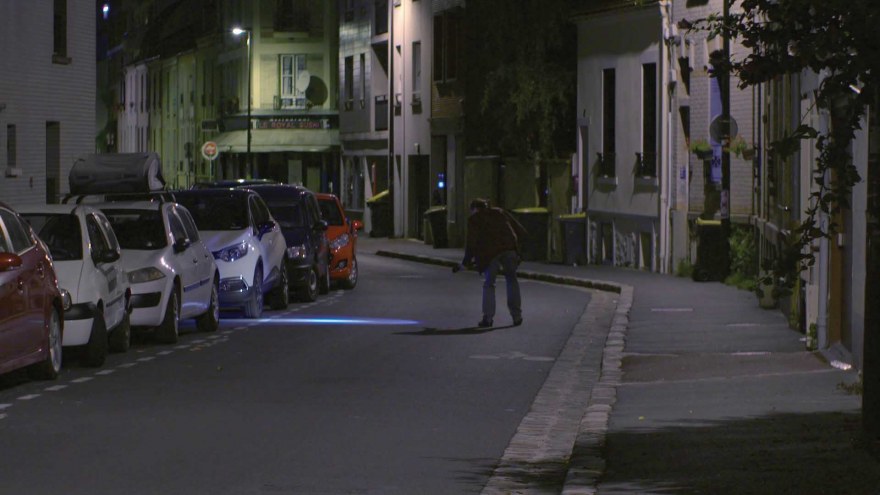Breakfast with A priori sauvage
Interview with Romain André, director of A priori sauvage
How did you come up with the idea of a film dealing with the subject of solitude in the big cities?
I didn’t start out intending to make a film about solitude. In the beginning, I was more focused on the question of insomnia: the way work troubles our sleep, and sleep our work. Solitude came later and it proved to be an incredible fictional motor: it’s crazy what we are capable of doing to feel less alone!
A priori sauvage portrays the city in a new light, a deserted city, nocturnal, given over to wild animals. Could you tell us about this aspect of your film?
The film’s esthetic gamble is that the presence of a wild animal in the city would break the common perceptions that we have of it. The stone marten crosses the street and suddenly, it relativizes the controlling power that humans have over their environment. The city becomes something more than simply a place of human activity: it is also a network of hiding places for animals which may very well outlive us.
Was focusing on the absurdity of corporate communication a way to evoke the empty and absurd everyday lives of the two characters?
It is above all a way to evoke work: that is what is absurd and empty, and leaves us overwhelmed. My characters aren’t in great shape, that is certain, but I wouldn’t go so far as to say their everyday lives are empty. They still have things they hold on to: him, his nighttime walks, her, the possibility of creating sincere connections despite a hostile environment.
How has the public reacted to the first screenings of A priori sauvage ?
Feeling the audience stirred – like I myself was stirred – at the first appearances of the animal filled me with joy. I was also pleasantly surprised to hear laughter in the room sometimes, whereas I thought that the humor that Emmanuelle Jacob (my co-writer) and I had worked on was quite fine.
Are there any directors in the national or international competitions that particularly interest you?
I have to admit that I have not had the time to dive into the selection yet.
Are there certain freedoms that the short film format allows you?
Production conditions for this film were very comfortable: I worked with long-time colleagues, everyone was paid, and we had time for both the shooting and the editing, which goes to say that we were able to take advantage of the industry’s means without suffering its constraints. It’s lucky for us.
A priori sauvage was selected in the National Competition (F9).








